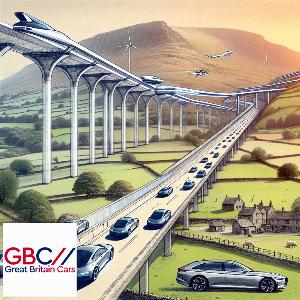Air Minicabs to Air Minicabs: A Possible Transition
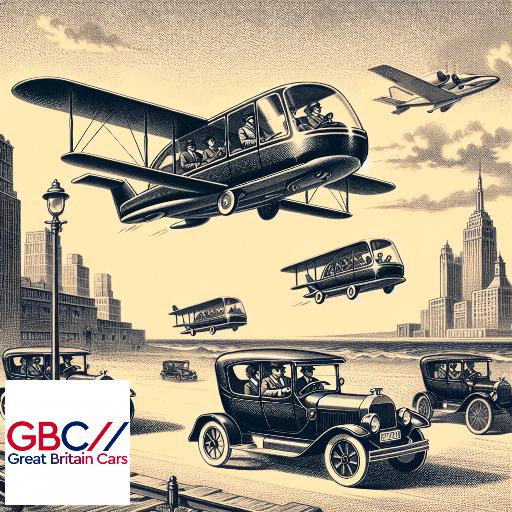
Air transfer Concept
The concept of Air transfers, also known as Air transfers, is a revolutionary idea that could potentially transform the transportation industry. This innovative concept involves the use of small, unmanned aircraft to transport people or goods from one location to another, bypassing the need for traditional ground-based transportation. The idea is to leverage advanced technology, such as artificial intelligence and drone technology, to create a new mode of transportation that is faster, more efficient, and environmentally friendly. The transition from traditional transfers to air transfers could significantly reduce traffic congestion, decrease travel times, and lower carbon emissions. However, there are several challenges that need to be addressed, including safety concerns, regulatory issues, and public acceptance. Despite these challenges, the potential benefits of air transfers are immense, and they could potentially revolutionize the way we travel in the future.
Air transfer Technology
Air transfer Technology is revolutionizing the way we perceive urban mobility. This innovative technology is set to transform our traditional transfers into air transfers, offering a faster and more efficient mode of transportation. The concept of air transfers is not new, but recent advancements in technology have made it a viable option for the near future. These electric vertical take-off and landing (eVTOL) vehicles are designed to carry passengers over congested city streets, reducing travel time significantly. Companies like Uber and Airbus are already investing heavily in this technology, envisioning a future where air transfers are as common as traditional transfers. However, there are still challenges to overcome, including regulatory hurdles, safety concerns, and public acceptance. Despite these obstacles, the potential benefits of air transfer technology are too significant to ignore. As we move towards a more sustainable and efficient future, the transition from air transfers to air transfers seems not only possible but inevitable.
Air transfer Companies
Air transfer companies are revolutionizing the transportation industry, offering a new mode of travel that promises to be faster, more efficient, and more environmentally friendly. These companies are developing air transfers, also known as air transfers, which are small aircraft designed to transport people over short distances within or between cities. The transition from traditional transfers to air transfers could significantly reduce traffic congestion and travel times, making commuting more convenient and less stressful. Companies like Uber and Volocopter are leading the way in this emerging market, investing heavily in the development of air transfer technology and infrastructure. They envision a future where air transfers are as common as traditional transfers, with air transfer ports located throughout cities for easy access. While there are still many regulatory and logistical challenges to overcome, the potential benefits of air transfers make them an exciting prospect for the future of urban transportation.
Air transfer Infrastructure
The concept of air transfers, also known as air transfers, is no longer a distant dream but a possible transition in the near future. This innovative mode of transportation is expected to revolutionize the way we travel, offering a faster, more efficient, and environmentally friendly alternative to traditional ground transportation. However, the successful implementation of air transfers hinges on the development of a robust air transfer infrastructure. This infrastructure would include vertiports for takeoff and landing, charging stations for electric air transfers, air traffic control systems, and safety measures. The design and construction of these facilities would need to adhere to stringent regulations to ensure the safety and efficiency of air transfer operations. Moreover, the integration of air transfers into the existing transportation network would require significant collaboration between various stakeholders, including government agencies, urban planners, and private companies. Despite the challenges, the potential benefits of air transfers, such as reduced traffic congestion and lower carbon emissions, make the development of air transfer infrastructure a worthwhile endeavor.
Air transfer Regulations
The concept of air transfers, also known as air transfers, is no longer a distant dream but a fast-approaching reality. As we transition into this new era of transportation, it is crucial to establish comprehensive air transfer regulations to ensure safety and efficiency. Regulations must address various aspects, including vehicle safety standards, operator qualifications, and air traffic control. The air transfers should meet stringent safety requirements, similar to those for traditional aircraft. Operators should possess the necessary skills and training to handle these advanced vehicles. Moreover, air traffic control systems need to be updated to accommodate the potential influx of air transfers. This could involve developing new technologies for managing increased air traffic and ensuring seamless integration with existing systems. Furthermore, regulations should also consider environmental impacts, noise levels, and privacy concerns associated with air transfers. In conclusion, as we transition from air transfers to air transfers, it is imperative to establish robust regulations to ensure a safe, efficient, and sustainable future for this promising mode of transportation.
Air transfer Market
The Air transfer market is poised for a significant transition, with the potential to evolve from Air transfers to Air transfers. This shift is driven by advancements in technology, increasing urbanization, and the need for efficient transportation solutions. The concept of Air transfers is not far-fetched, with several companies already investing in the development of autonomous flying vehicles. These vehicles are expected to offer a convenient, fast, and cost-effective mode of transportation, reducing travel time and congestion in urban areas. The Air transfer market is projected to witness substantial growth, with a surge in demand for quick intra-city travel. However, this transition also brings challenges, including regulatory hurdles, safety concerns, and infrastructure requirements. Despite these obstacles, the potential benefits of Air transfers are immense, promising a revolution in urban mobility. The future of transportation could very well be in the skies, with Air transfers making way for the era of Air transfers.
Air transfer Operations
Air transfer Operations are set to revolutionize the way we travel, with the potential to transition from traditional air transfers to air transfers. This innovative mode of transportation aims to provide a faster, more efficient, and environmentally friendly alternative to conventional ground transfers. Air transfers, also known as Vertical Take-off and Landing (VTOL) vehicles, are designed to operate in urban environments, reducing traffic congestion and travel time significantly. The transition to air transfers would mean a shift from scheduled flights to on-demand services, much like hailing a transfer. Companies like Uber and Airbus are already investing heavily in this technology, with plans to launch their services in the next few years. However, there are still challenges to overcome, including regulatory approval, infrastructure development, and public acceptance. Despite these hurdles, the potential benefits of air transfer operations are immense. They could transform urban mobility, reduce carbon emissions, and open up new opportunities for business and leisure travel. The transition from air transfers to air transfers could be the next big step in the evolution of transportation.
Air transfer Environmental Impact
The advent of air transfers, also known as air transfers, is a promising development in the transportation sector. However, it's crucial to consider their environmental impact. Air transfers, like any other mode of transport, will consume energy. The source of this energy will determine the environmental footprint. If powered by fossil fuels, air transfers could contribute to air pollution and climate change. However, many companies are exploring electric and hybrid models, which could significantly reduce emissions. Additionally, air transfers could alleviate traffic congestion, leading to fewer cars on the road and less pollution. However, the production, operation, and disposal of air transfers also need to be environmentally friendly to ensure a sustainable transition. Therefore, while air transfers hold great potential for efficient and fast transportation, their environmental impact must be carefully managed to ensure a truly green transition.
Air transfer Passenger Experience
The future of urban mobility is set to take a dramatic turn with the advent of air transfers. This innovative mode of transportation, also known as air transfers, promises to revolutionize the passenger experience. Imagine bypassing the city's gridlocked traffic and soaring through the skies to reach your destination in a fraction of the time. Air transfers are designed to provide a seamless, efficient, and exhilarating travel experience. The transferins are equipped with state-of-the-art technology and luxurious amenities to ensure passenger comfort. The panoramic windows offer breathtaking views of the cityscape, transforming the journey into a visual treat. Moreover, the transition from traditional transfers to air transfers is expected to be smooth. With the integration of advanced booking systems, passengers can easily schedule their flights, making air transfers as accessible as hailing a transfer. In conclusion, the air transfer passenger experience promises to be a game-changer, offering a unique blend of convenience, speed, and luxury. The transition from air transfers to air transfers could well be the next big leap in urban mobility.
Air transfer to Air transfers Transition
The concept of air transfers has been around for a while, but the transition to air transfers could be a game-changer in the aviation industry. Air transfers, typically small aircraft, provide quick transport to short distances. However, the evolution to air transfers could revolutionize this service, offering a more personalized, efficient, and convenient mode of transport. Air transfers, unlike air transfers, would operate much like traditional transfers but in the sky. They would be available on-demand, providing door-to-door service, eliminating the need for long waits at airports. This transition could significantly reduce traffic congestion in major cities and cut down travel time drastically. Moreover, with advancements in technology, air transfers could soon become autonomous, further enhancing their efficiency and safety. The transition from air transfers to air transfers could indeed be a significant leap towards a future of smart, sustainable, and efficient urban mobility.
Our Latest Blog Posts

Minicab or Uber: Comparing Airport Minicab Options
Blog about transfer or Uber: Comparing Airport Transfer Options

Jet Lag Strategies: Recovering After Long-Haul Flights
Blog about Jet Lag Strategies: Recovering After Long-Haul Flights
Blogs Pages
The Evolution of the London Airport Minicab Industry
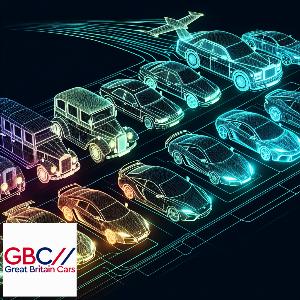
Blog about The Evolution of the London Airport Transfer Industry...
Stansted to the Gateway of the Fens: Elys Cathedral City
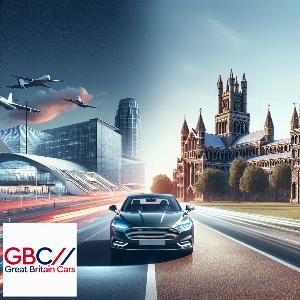
Blog about Stansted to the Gateway of the Fens: Elys Cathedral City...
Gatwick to Liverpool: Exploring the Beatles and Maritime Heritage
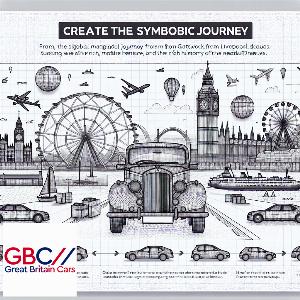
Blog about Gatwick to Liverpool: Exploring the Beatles and Maritime Heritage...
Stansted to the Lincolnshire Wolds: A Lesser-Known Gem
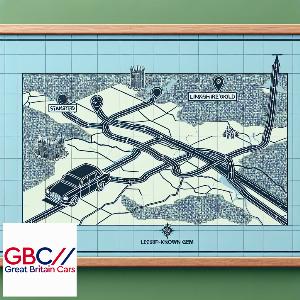
Blog about Stansted to the Lincolnshire Wolds: A Lesser-Known Gem...
Our Clients Testimonials

Solid and kind
The driver was entirely dependable, supportive and kind .His way of behaving was simply delightful.
Hannah





High benefits
The vehicle is overall around stayed aware of and cleaned . It was particularly fair.
Miller





On time
Easy booking and the driver was on time , courteous and helpful.
Samuel





Punctual
The driver was so punctual and reached in proper time which was so good.
Elizabeth





Best specialist co-op
They are best specialist co-op. They helped me a great deal in my manner.
William





Reliable
The driver was so reliable and shown up at in authentic time which was so fantastic.
Abigial





Dependable
The driver was so dependable and arrived at in legitimate time which was so great.
Grace





Fair attributes
It has fair attributes, kind , pleasant ,conversational and unbelievably solid driver.
Hill





Trustworthy
The driver was so trustworthy and showed up at in valid time which was so great.
Lee





Amenability
They have very neighborliness .They are genuinely agreeable in nature.
Jonson





Kindest behaviour
The drive was so polite and kind . Besides this he was helpful and nice also.
Alexander





Fair values
It has fair values, kind , polite ,conversational and very helpful driver and pleasant too.
Emma





Safe
Great Britain Cars cab is mostly safe cab. One can travel secure with them.
John





Strong and kind
The driver was no doubt, solid areas for strong kind .His method for managing acting was absolutely great.
Harris





Politeness
They have very politeness .They are truly friendly in nature.
Nelson





Basic booking
Basic booking and the driver was on time , aware and strong.
Nathan





Remarkable help
It is astoundingly fantastic help and it's also reliable and on time for the most part. I'm genuinely amazed by it.
Anna





Best opportunity
The driver was no doubt reliable, strong and kind .His approach to acting was just wonderful.
Logan





Easy approach
Booking of Great Britain Cars cab is easiest and totally satisfying.
Daniel





Key booking
Key booking and the driver was on time , careful and strong.
Moore





